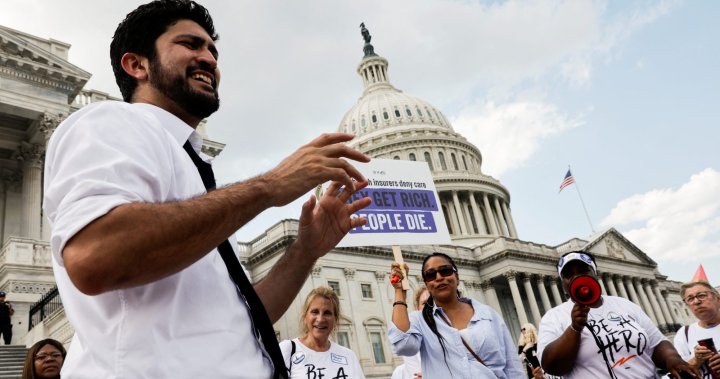A U.S. congressman from Texas recently participated in a day-long “thirst strike” to emphasize the need for federal safety standards for workers in extreme heat conditions. Representative Greg Casar, a Democrat, spent the day outside the U.S. Capitol in Washington, D.C., under the scorching 30 degrees Celsius heat, refusing to eat, drink water, or take breaks. The strike was held to raise awareness about the increasing importance of this issue with record-breaking temperatures. Casar, joined by other Democrats throughout the day, stated that he would only end the strike when nurses advised him to. Casar also held a ceremony to honor workers who have died from heat-related illnesses while on the job.
During the strike, Casar highlighted that although the conditions in Washington were challenging and hot, they were not as hot as those experienced in Texas. Temperatures in Casar’s district, which includes parts of Austin and San Antonio, were expected to reach 38 degrees Celsius (100 degrees Fahrenheit) on the same day.
The strike comes at a time when countries worldwide, including the U.S. and Canada, are continuously breaking heat records. In the past 30 days alone, nearly 5,000 heat and rainfall records have been broken or tied in the U.S., with more than 10,000 global records set. Heat exposure is a serious issue for workers, with an estimated 600 worker fatalities and 170,000 workplace injuries per year in the U.S., according to a consumer advocacy group.
Casar’s strike was triggered by a Texas law signed by Governor Greg Abbott that prevents cities from implementing local rules that offer additional protections to workers in extreme heat. The law, set to take effect on September 1, will overturn local ordinances in cities like Austin, Dallas, and Houston that require water and rest breaks during extreme heat events.
Concerns have been raised regarding the potential lack of protection for workers once these local rules are revoked. Critics argue that without state regulations to replace the local protections, employers may neglect to ensure their employees have sufficient safeguards against heat exposure and dehydration.
Currently, only California, Washington, and Minnesota have specific statewide laws in place to protect workers from heat-related illnesses. In Canada, each province and territory has its own regulations to ensure employers provide protections for workers in high temperatures.
Casar, along with over 100 other members of Congress, has written to Acting Labor Secretary Julie Su, urging for the implementation of a federal workplace heat standard that includes provisions for adequate hydration, rest breaks, on-site medical services, and additional safety requirements for workers. However, the status of these rules is uncertain due to Su’s acting capacity and arguments from Republicans and business groups regarding her authority.

